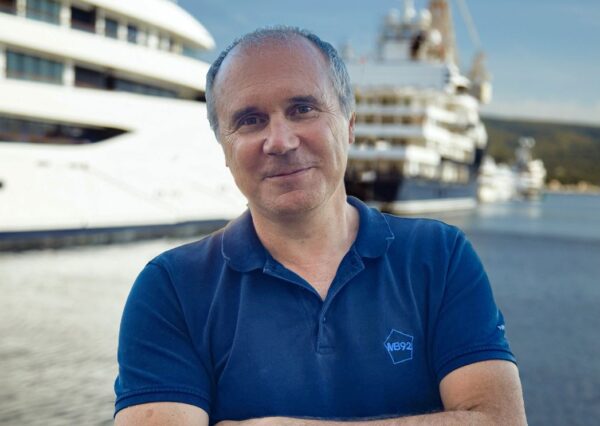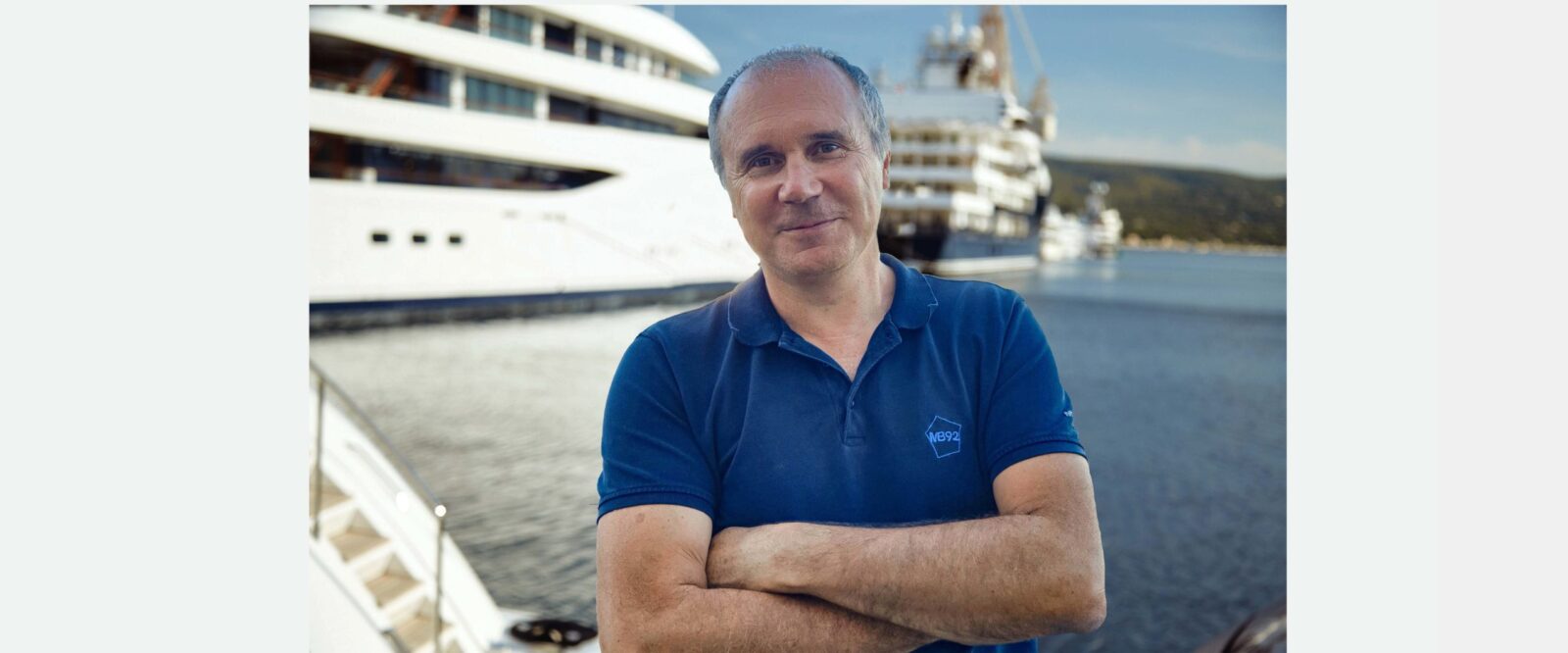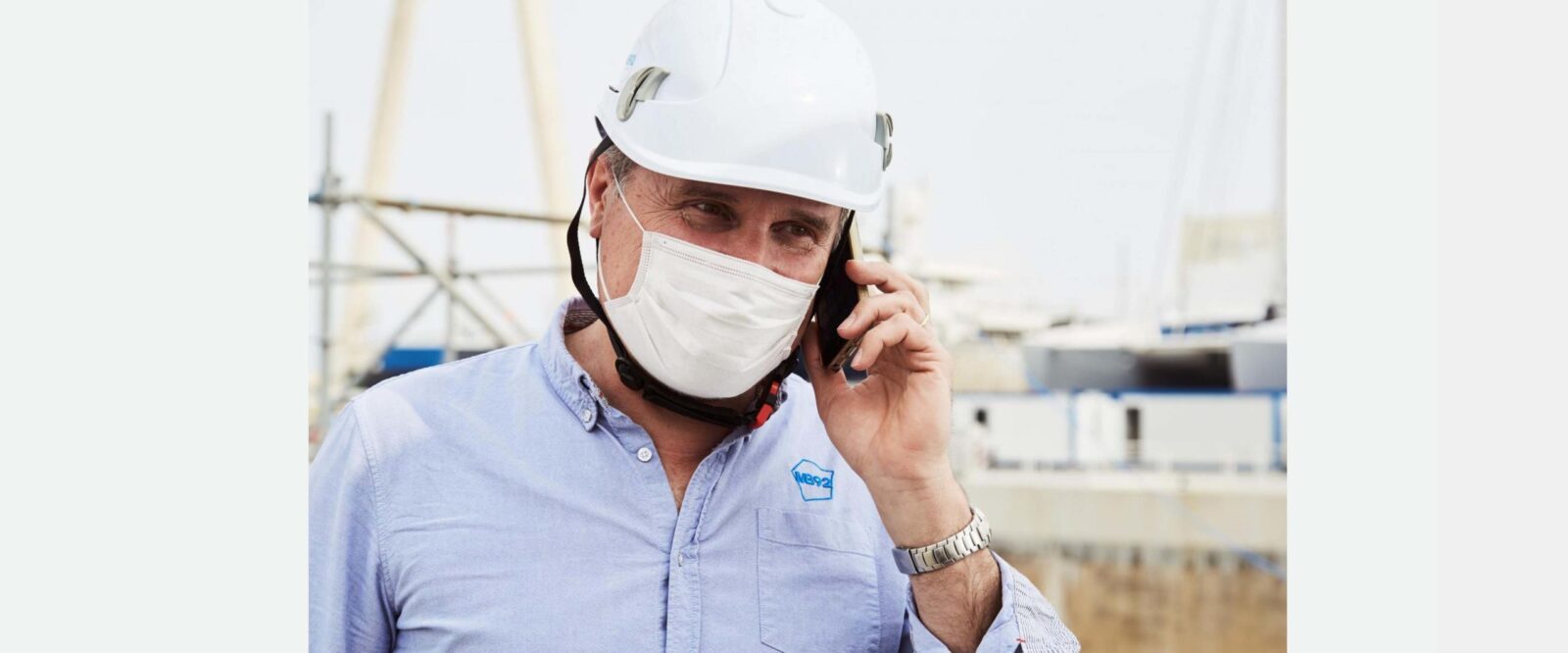

The latest edition in our Passion for the sea series gave us the opportunity to talk with our Senior Project Manager, Luc Langlois. With over seven years’ experience in the role at MB92 La Ciotat as well as a background on new build projects, it was great to hear his story and perspective on the different approaches to superyacht refit and new build projects.

What inspired you to forge a career in this industry?
Once I finished my studies, it was clear for me that I wanted to work with boats. They symbolised adventure and the inspiration to discover. Plus, there is such a concentration of interesting technologies onboard, it satisfied a need in me to always have something else to learn or improve on.
Following a period of time spent abroad, I decided to settle in a new region on my return to France and was immediately drawn to the yacht industry.
What is your background?
I studied in a school in Saint-Nazaire where I was introduced to the theory of shipbuilding and since then, have spent my entire professional life working in either the shipbuilding or ship repair industry.
I have worked on all kinds of boat; trawlers, tugs, large cruise ships, high speed ferries, large fishing boats etc. as a designer, onboard foreman, technical manager or site manager.
I have also spent time in different companies and countries, mainly in Brittany but also in Vietnam and China.
How would you compare your experience working in a new build shipyard with a specialist refit shipyard?
A new build is usually a long process with well-defined sequences. It is starting from scratch where you see the project growing day by day and, at the end, when the boat leaves, it is like someone in your family has left home, just because you saw it grow from nothing.
In a refit project, satisfaction comes from having taken previously defined expectations (timing, quality, budget etc…) and either meeting or exceeding them, and always aiming to finish with a satisfied client.

Specifically, in the yacht world, particular care is given to the finish and to the aesthetic elements of the vessel, which adds an extra special layer to the more functional or commercial boats that I have worked on previously. And, of course, all jobs related to the guest areas require very specialised workers and subcontractors that you don’t see, or at least not as often, in the more commercial ship repair industry.
What gets you up in the morning?
The fact that I get to work in a field of excellence but also get to enjoy a pleasant maritime environment are surely the main reasons.
This industry is also a breeding ground for people coming from every corner of the globe, and with a variety of experiences and backgrounds. Every day can bring a new experience, and opportunity to learn.
How would you define excellence?
I would say that when experienced professionals within this industry are unanimous in saying ‘’this is perfectly done’’, this is close to a definition.
Even so, this is a difficult goal to achieve, nothing should be left to chance and nothing can be taken for granted in advance.
The ultimate goal is to achieve the result that the client expects so everything we do must be towards this end.
What advice would you have for those interested in starting their career in this sector?
Motivation, humility and a desire to maintain a positive team spirit are vital personal characteristics to possess, but we must never forget that the ultimate goal is to achieve the result that the client expects so everything we do must be towards this end.
What innovations do you think will influence your position in the future?
Compared to my first years of work, it is obvious that communication systems and software have progressed enormously, and this will continue to enhance working procedures, offering greater efficiency and access to key project data.
Also, I would say that the increased demand for energy savings from owners and commercial shipping from a desire to control costs and become more sustainable will lead to more conversions of the propulsion or power management systems on boats in the coming years.
Hello, how can we help you today?
- I want to request a quote
- I want to get in touch with an MB92 Barcelona representative
- I want to get in touch with an MB92 La Ciotat representative
- I want to get in touch with an MB92 Red Sea representative
- I want to know more about MB92 Red Sea
- I want to apply for a job vacancy
- I want to get directions